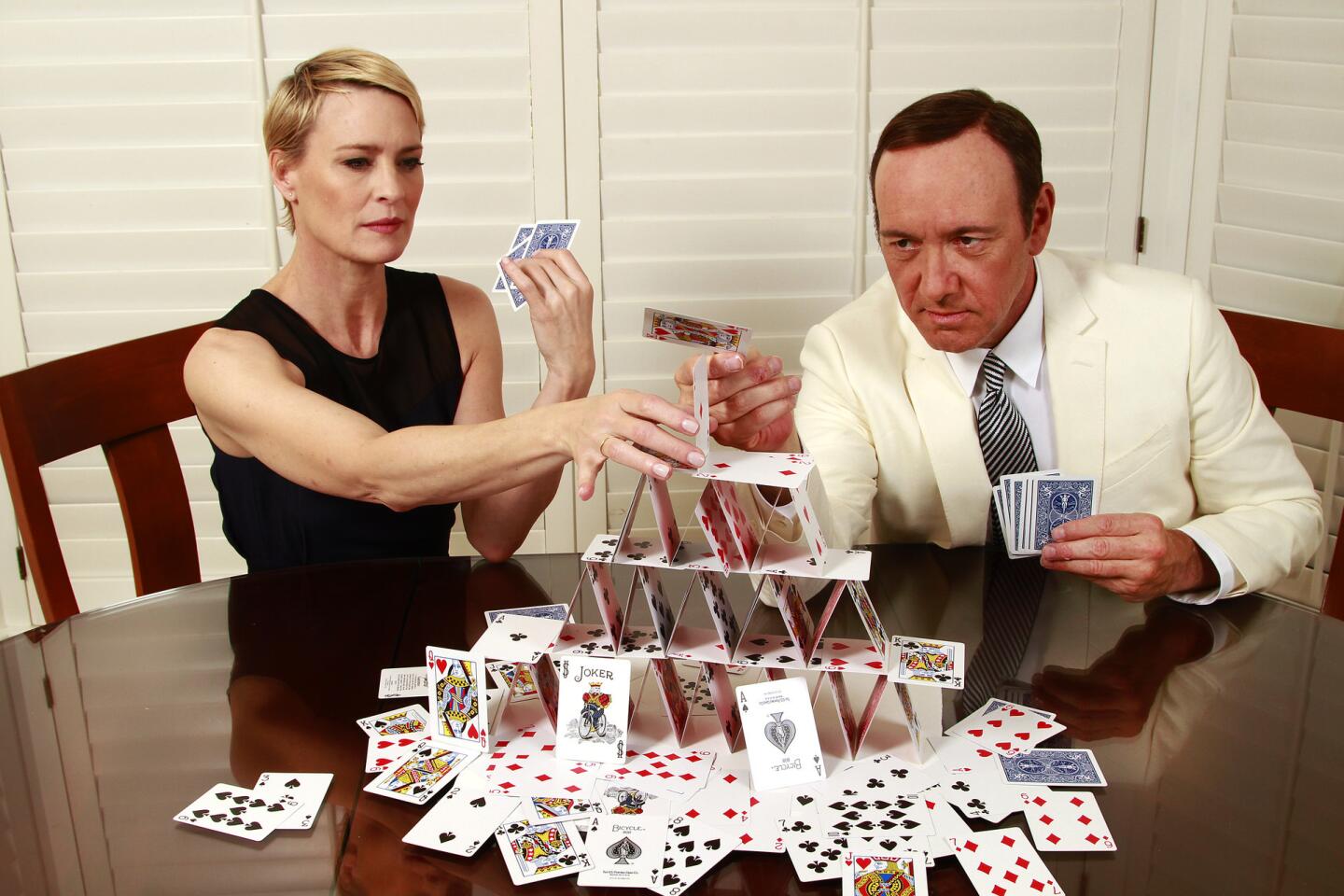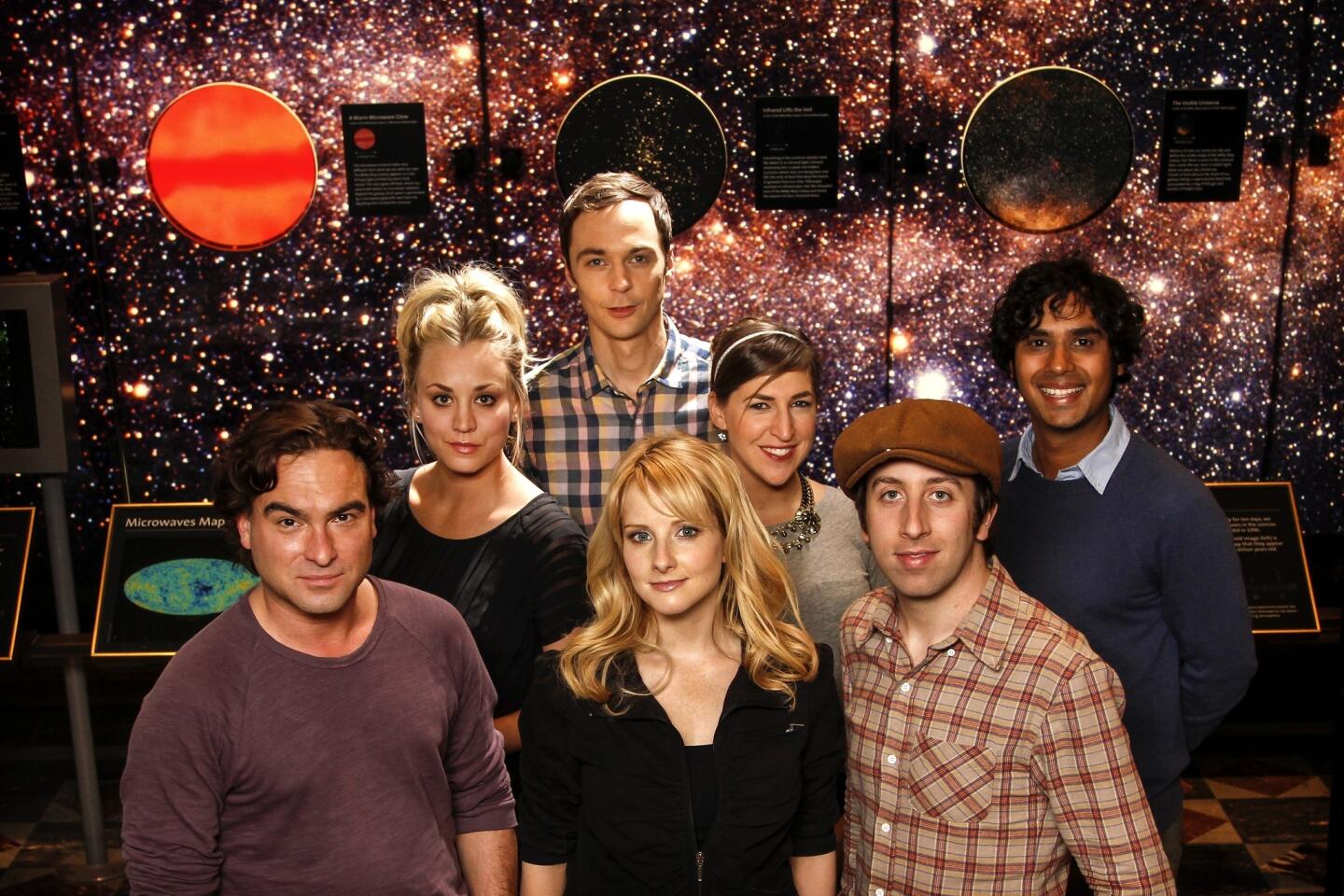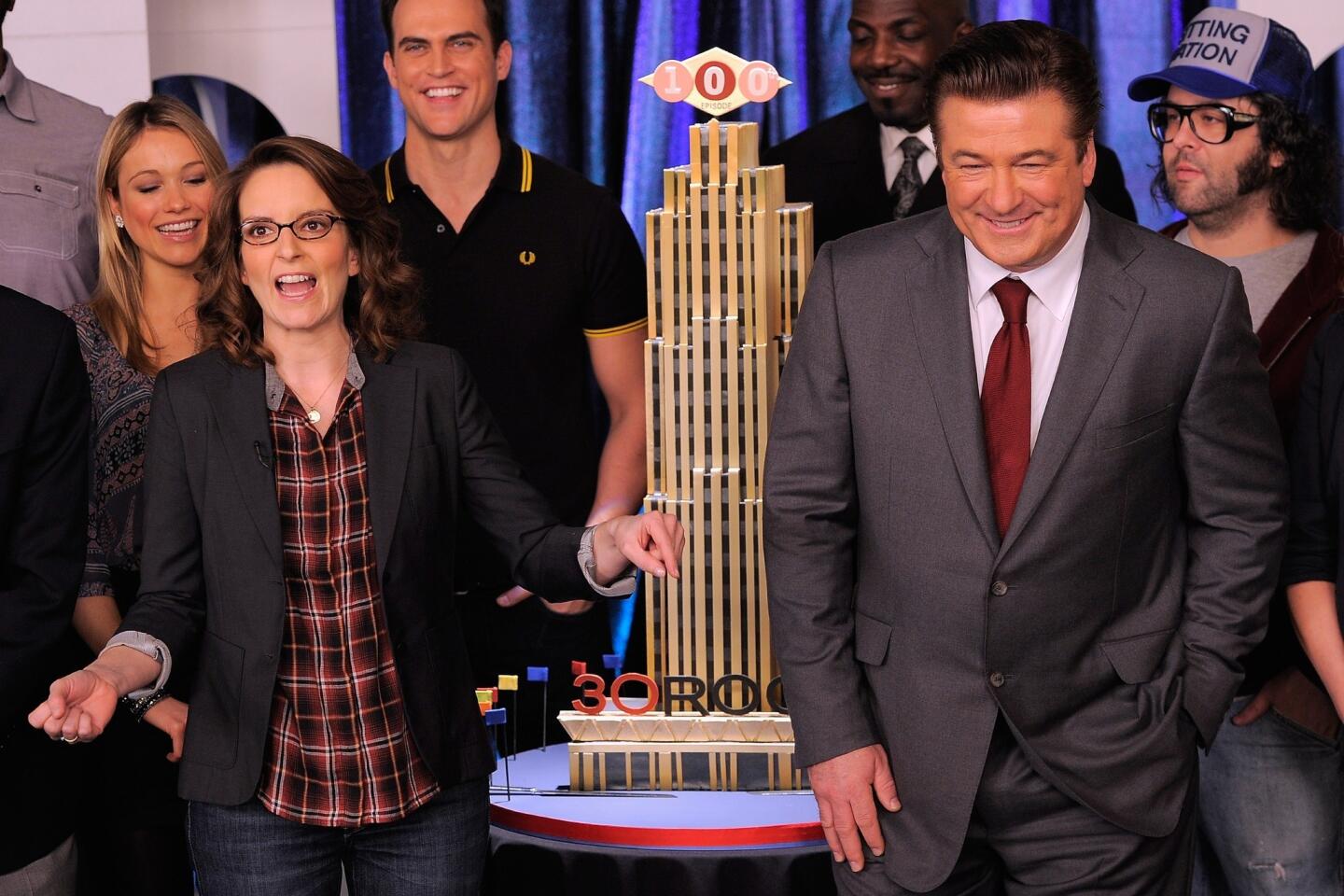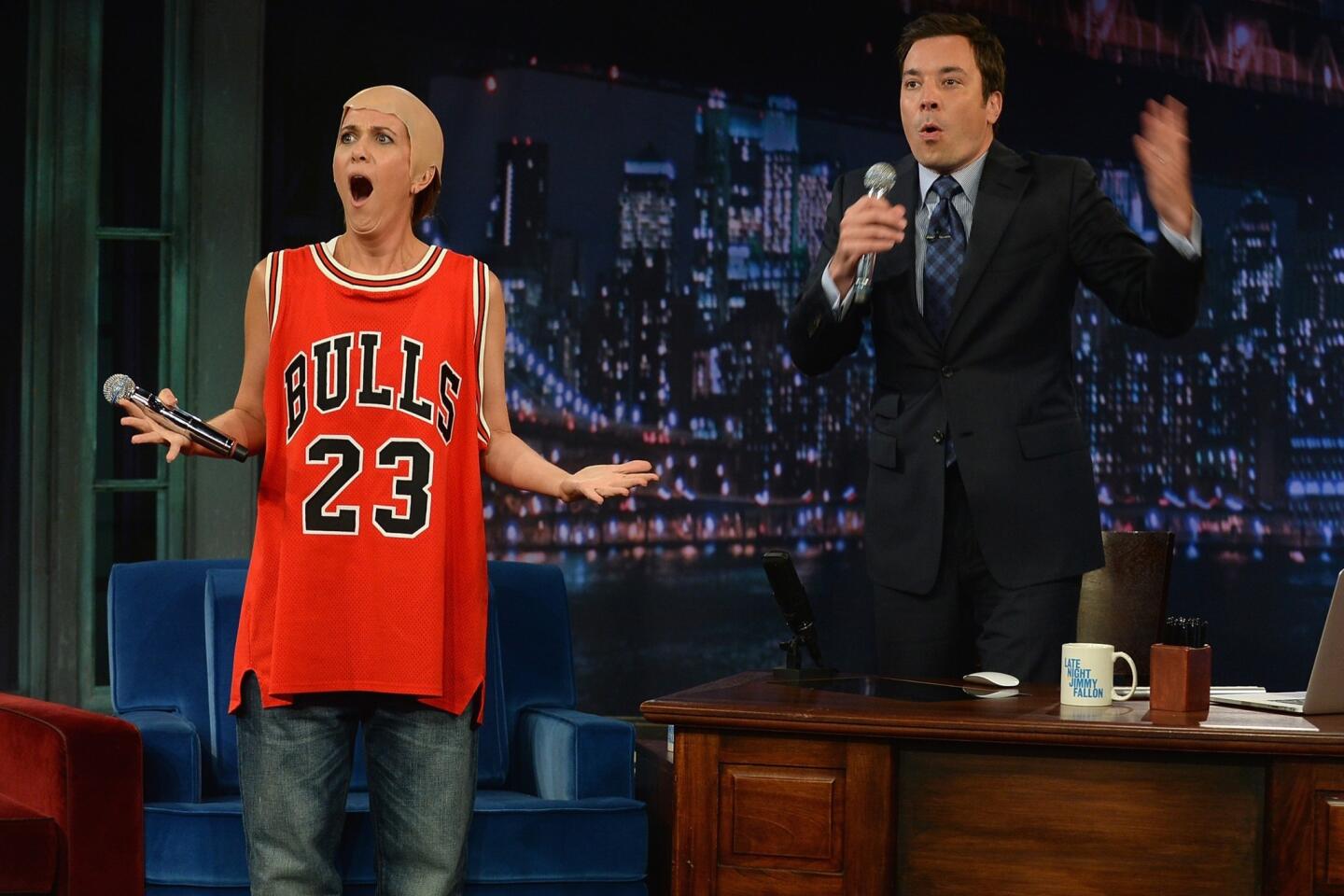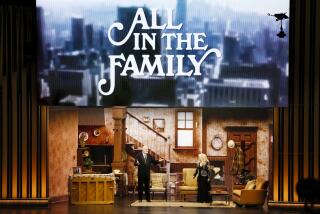Emmy nominations: Will Netflix spoil the TV experience?
Thursday morning, after the news broke that Netflix had received 14 Emmy nominations -- joining the ranks of broadcast and cable -- the company’s chief content officer was quoted as saying, “In a way, it solidifies that television is television, no matter what pipe brings it to the screen.”
The operative phrase there is “in a way,” though. It’s true that many aspects of television remain the same when TV takes an online form: the episodic structure, to name just one. But to claim that television on Netflix is the same as television on, well, my television, simplifies the matter.
During my spring break, I binged on “House of Cards” just as much as the next person. But that’s exactly it: I binged.
EMMYS 2013: Top nominees | Recap | Winners timeline
The experience was entirely different from watching a show like “Mad Men,” where all you are left with at the end of each episode is a teasingly cryptic preview. Instead, when one episode of “House of Cards” ended in suspense, I was free to satiate the feeling by watching the entire season.
Like cable before it, Netflix, in more ways than one, has rearranged television’s units of measure. Given the nature of online viewing, Netflix doesn’t have to adhere to specific running times or ill-placed cliffhangers before commercials.
There are advantages and disadvantages to this. On one hand, I gained a better understanding of the show’s complexities, picking up on small details that I otherwise would have missed were I to have come back to it a week later. One colleague observed that it’s exactly like reading a book in one sitting.
Still, there was a disadvantage to watching the show in one (or two) sittings. Watching a television show, at least for me, is a communal experience. After each week’s episode of “Breaking Bad,” for example, I talk to my friends about it and read commentaries, speculating what Walter White’s next move might be. It’s not just watching the show that’s enjoyable; it’s also the period from last week’s episode to next week’s.
Perhaps a full-season release works well for a drama like “House of Cards.” But do you really want to watch a full season of “Seinfeld,” “30 Rock” or “Modern Family” on first run? By tuning in each week over a period of months, viewers build a stronger relationship with the characters and their lives.
As Netflix develops more shows, it’s worth evaluating whether a full-season release undercuts the goal of creating an invested audience. Viewers might not care what “pipe” brings television to the screen, but how it gets there does make a difference.
ALSO:
Dzhokhar Tsarnaev and his disgusting fangirls
Best financial advice for McDonald’s employees: Leave
Rolling Stone nails it with its Dzhokhar Tsarnaev cover
Follow Daniel Rothberg on Twitter: @danielrothberg
More to Read
A cure for the common opinion
Get thought-provoking perspectives with our weekly newsletter.
You may occasionally receive promotional content from the Los Angeles Times.
